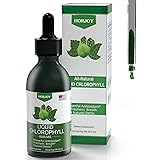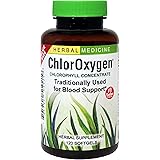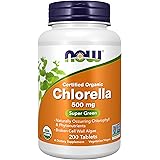Have you ever paused to consider the intricate dialogue between your digestive system and your mental state? As illuminated in the insightful discussion above with Sadhguru and his interviewer, the profound connection between the gut and the brain is not merely a modern scientific curiosity but a foundational principle in traditional healing philosophies.
The concept that our gut health intrinsically impacts our psychological well-being is gaining widespread recognition in contemporary neuroscience. However, for millennia, systems such as Ayurveda, Siddha, and Yoga have meticulously explored and leveraged this very relationship, offering sophisticated protocols for holistic health.
The Gut-Brain Axis: A Masterful Communication Network
The interviewer astutely raises the critical question of how to impress upon “so many people” the undeniable link between gut health and mental clarity. This inquiry points to the emerging field of the gut-brain axis, a bidirectional communication pathway between the central nervous system (brain) and the enteric nervous system (ENS) within the gut.
This intricate network involves neurotransmitters like serotonin, which are primarily produced in the gut, hormonal signaling, and direct communication via the vagus nerve. Consequently, a disturbed gut environment can directly modulate brain function, influencing mood, cognitive processes, and emotional regulation. Imagine if the very foundation of your thoughts and feelings originated not just in your cranium, but also in your abdominal cavity.
Traditional Wisdom: Cleansing as a Prerequisite for Mental Health
Sadhguru’s direct and emphatic statement, “You should not be constipated,” encapsulates a core tenet across various traditional Indian systems of medicine. This seemingly simple advice underscores a comprehensive understanding of physiological balance. Chronic constipation, or any significant gastrointestinal dysbiosis, is viewed not merely as a physical discomfort but as a precursor to broader systemic issues, including psychological distress.
Within Ayurveda, Siddha, and Yoga, addressing psychological problems invariably begins with detoxification and gut cleansing. These ancient sciences posited that an accumulation of ‘Ama’ (toxic metabolic waste) in the digestive tract impedes the flow of vital energy and nutrients, thereby clouding the mind and disturbing emotional equilibrium. Therefore, a clean gut is considered the indispensable first step towards mental and spiritual lucidity.
Ayurvedic and Siddha Principles of Detoxification
The traditional Indian systems do not merely advocate for a casual cleanse but for a thorough and meticulous purging. Ayurveda, for instance, outlines specific Panchakarma therapies, with ‘Virechana’ (therapeutic purgation) being a primary method aimed at eliminating excess Pitta dosha and toxins from the gut. Similarly, Siddha medicine employs various herbal formulations and oil therapies to achieve a deep internal purification.
These practices are not arbitrary; they are rooted in a deep physiological understanding. The goal is to facilitate the complete evacuation of stagnant fecal matter, undigested food particles, and pathogenic microbes that contribute to systemic inflammation and toxin buildup. Evidently, the emphasis is on a holistic reset rather than a superficial intervention.
The Art of Gut Purging: Beyond Simple Evacuation
Sadhguru describes a process where, after cleansing, “if you drink water, just water should come out as it is.” This vivid description highlights the depth of purification traditionally sought. It’s not about merely alleviating temporary constipation, but about achieving a state of pristine intestinal cleanliness, allowing the gut to function optimally without hindrance.
The methods employed are sophisticated. Traditional cleansing often involves the use of specific oils, as Sadhguru mentions, to “lubricate” the system. These medicated oils, such as castor oil or preparations containing Triphala ghee in Ayurveda, perform a dual function. They help to loosen and mobilize accumulated toxins from the intestinal walls while simultaneously providing a gentle laxative effect that encourages peristalsis.
Moreover, the careful selection of these agents is crucial. They are designed to facilitate effective evacuation without causing undue irritation or stripping the gut lining. This meticulous approach ensures that the cleansing process is both profound and gentle on the delicate intestinal ecosystem.
Safeguarding the Gut’s Microbial Quality During Cleansing
A critical nuance in traditional gut cleansing, as pointed out by Sadhguru, is the imperative to “not rip the gut of its microbial quality.” This insight is remarkably prescient, anticipating modern microbiology’s emphasis on the gut microbiome. The vast community of bacteria, fungi, and other microorganisms residing in our gut plays a pivotal role in digestion, nutrient absorption, immune function, and even neurotransmitter production.
Consequently, indiscriminate or harsh cleansing methods can indeed decimate beneficial microbiota alongside harmful pathogens. Traditional practices often employ specific herbs or formulations known for their selective action, supporting healthy flora while discouraging pathogenic overgrowth. Imagine a purification process that acts as a skilled gardener, carefully weeding out undesirable elements while nurturing the vital plants.
Furthermore, post-cleansing protocols frequently include practices to repopulate and nourish the gut microbiome. This might involve consuming specific fermented foods, probiotic-rich preparations, or herbal remedies that act as prebiotics, feeding the beneficial bacteria. The holistic view ensures that cleansing is followed by restoration, establishing a sustainable environment for long-term gut health.
Holistic Implications for Psychological Clarity and Well-being
The connection between a clean gut and psychological problems is not coincidental. When the gut is free from accumulated toxins and dysbiosis, the body’s entire physiological landscape shifts. Inflammation, which is increasingly linked to mood disorders and cognitive decline, is reduced. Nutrient absorption improves, ensuring the brain receives the necessary building blocks for neurotransmitter synthesis and optimal function.
A well-functioning gut also lessens the burden on the liver and other detoxification organs, allowing the body to operate with greater efficiency. This systemic relief often translates into enhanced mental clarity, reduced anxiety, improved mood, and a greater sense of inner peace. People often report feeling “lighter” not just physically, but also mentally and emotionally after a thorough gut cleanse. Ultimately, the lessons from traditional Indian medicine offer a profound roadmap to achieving both physiological balance and psychological resilience through meticulous attention to our internal ecosystem, particularly our gut health.











